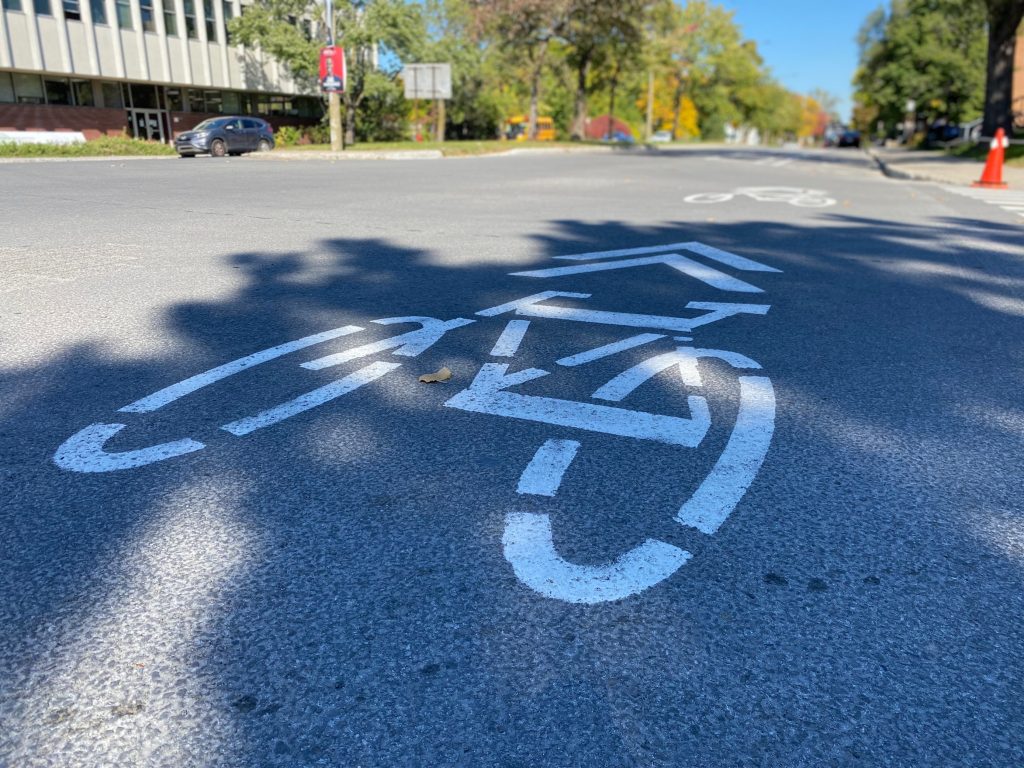Bill 96 amendment for English CEGEP students passed, not enough to help Indigenous: Grand Chief says
Posted May 12, 2022 2:14 pm.
Last Updated May 12, 2022 6:35 pm.
The Quebec legislature passed an amendment to Bill 96 – its proposed reform to the province’s French language law – on Thursday morning. It will ease rules slightly for English-speaking CEGEP students – they wouldn’t be forced to take three of their core courses in French.
They’ll instead have the option of taking three extra French-language courses focused on learning the language, 45 hours of education in French. The Legault government had previously said it would support the amendment.
Kahsennenhawe Sky-Deer, Grand Chief of the Mohawk Council of Kahnawake, was part of a group of Indigenous leaders that were in Quebec City earlier this week, calling for a “total and resolute” exemption from Bill 96.
What do you think of the amendment and why have you and other leaders in the Indigenous community been calling for an exemption from Bill 96?
Well, I think it’s important to highlight that although an amendment for students, Anglophone students, which, you know, our kids here from Kahnawake would fall under this. English is our second language. It’s still a requirement that, you know, is going to cause some undue stress.
We did have a career fair here in the community. We can already hear the sentiments expressed by our students that are already, you know, worried about their ability to reach it and, I guess, have their dreams realized when it comes to whatever it is they want to do, if they’re going to pursue higher education.
I think that there isn’t a lot of thought put into the kind of pressure that it puts on Indigenous students of having to be trilingual. You know, we’re for those of us that are English speaking communities and there are French speaking communities, Indigenous communities across Quebec, you know, for those that fall into our category, we’re going to have these issues now and the students are really worried. And it goes far beyond education, hence why we’re looking for exemptions completely out of Bill 96.
Why is this seen as going against reconciliation?
Because right now what we’re hoping is that we’ll have a better relationship that understands what it is that we’re trying to do in this country, in this province. You know, we’ve been our own nation long before European settlers came here.
There’s like a lack of recognition of our own governance, of our own laws, of our own language, our own culture that we feel is just important to be protected. And if we want to draw comparison and parallels, you know, of population size and we’ll say the number of speakers, if there’s anybody who’s faced with more adversity or that, you know, our language could become endangered or extinct – we’re at a more critical point than French Quebecers are. So, this bill, I feel, goes far beyond.
And in terms of service delivery, the impacts it will have on health. We’ve already seen what came out of the Viens Commission report and the racism that still exists in this province. We can only see the writing on the wall that things are just going to get worse, you know, for and I’ll say English speaking Indigenous people and Anglophones.
It’s very divisive. It doesn’t go in line with what we view as a reconciliation process moving forward.
RELATED:
- Quebec Indigenous CEGEP students call on government to rethink Bill 96, French language reform
- Quebec language law: some businesses fear impact of Bill 96, consider leaving province
- English Montreal CEGEP students protest against Quebec’s proposed language reforms
- Compromise made to Bill 96, English-speaking students still unhappy about impacts
On Wednesday, Premier Legault said that they’re open for discussions with the Indigenous community. What is your message to the government before they vote to pass Bill 96?
I think it’s imperative that they hear from us, you know. We need to meet. They need to hear our concerns and why we’re looking for this exemption. I think there’s been misunderstandings maybe in the media. You know, we don’t hate the French language.
I learned French through elementary school, high school. I see it as a tool. It’s different when it’s optional or you know, that you can learn it for the job. And university students to have an elective.
But when you force it on people, it sends a very, you know, a negative message. I’m hoping that [Legault] will sit with us, he will hear from us. And we could highlight all of the different areas that we look at in terms of an analysis of Bill 96, the impacts that it will have on our people. They really need to hear from us.
We’re hoping for some kind of a delay before it passes so that we can have meaningful dialogue. And you know that’s the only way we’re going to have a positive relationship moving forward.



